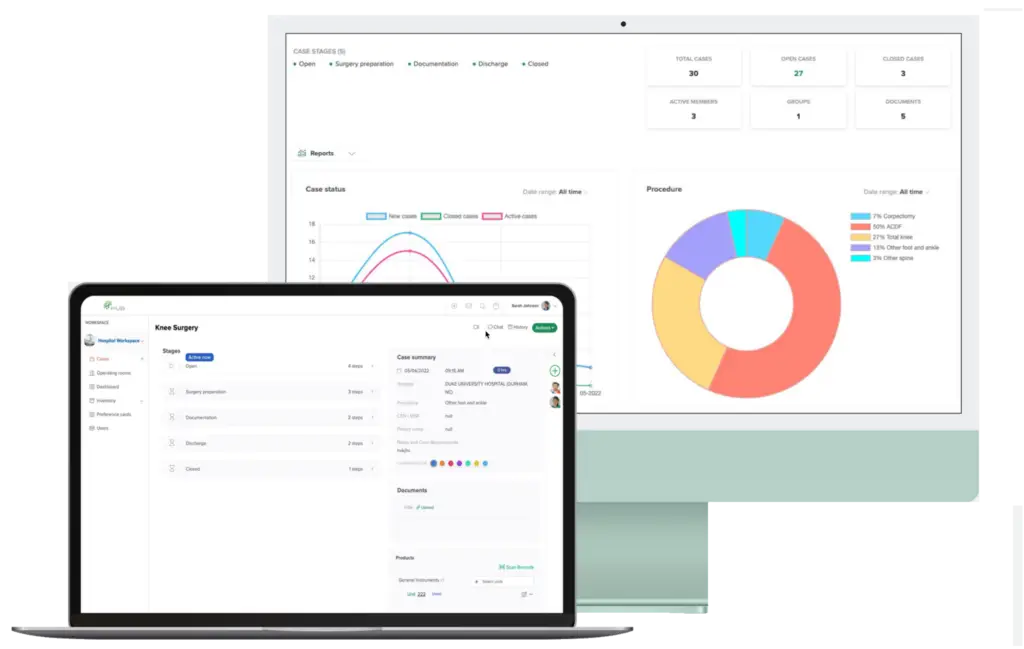Surgical practices are constantly seeking innovative solutions to enhance their operations and improve their bottom line. With rising costs and increasing competition, it’s essential for these practices to adopt advanced technologies. One such solution gaining popularity is the use of HUB Healthcare. In this article, we’ll explore how surgical practices are leveraging HUB Healthcare to optimize their operations and the benefits it brings.
What is HUB Healthcare?
HUB Healthcare is a centralized platform that connects various stakeholders in the healthcare industry, including patients, providers, payers, and manufacturers. It serves as a one-stop shop for all the information and resources needed to manage patient care and treatment efficiently.
How Does HUB Healthcare Work?
HUB Healthcare integrates with various systems and databases to collect and organize data. This data is then used to provide insights and support decision-making for all stakeholders involved in patient care. For surgical practices, HUB Healthcare can help streamline processes, improve communication, and provide valuable data and analytics to make informed decisions.
How Surgical Practices Use HUB Healthcare to Improve the Bottom Line
Streamlining Processes
One of the main ways surgical practices use HUB Healthcare to improve their bottom line is by streamlining processes. With HUB Healthcare, all patient information, including medical history, insurance coverage, and treatment plans, is stored in one centralized location. This eliminates the need for manual data entry and reduces the risk of errors.
Additionally, HUB Healthcare can automate tasks such as appointment scheduling, insurance verification, and prior authorization, saving time and resources for surgical practices. This increased efficiency leads to cost savings and improved revenue.
Improving Communication
Effective communication is crucial for the success of any surgical practice. With HUB Healthcare, all stakeholders involved in patient care can access the same information in real-time. This means that providers, payers, and manufacturers can communicate and collaborate seamlessly, leading to better patient outcomes and increased revenue.
For example, if a patient’s insurance coverage changes, HUB Healthcare can automatically update this information for all stakeholders involved. This eliminates the need for multiple phone calls and emails, saving time and resources for the practice.
Providing Valuable Data and Analytics
Data is a powerful tool for surgical practices. With HUB Healthcare, practices can access valuable data and analytics that can help them make informed decisions to improve their bottom line.
For example, HUB Healthcare can provide data on patient outcomes, treatment costs, and reimbursement rates. This information can help surgical practices negotiate better contracts with payers and identify areas for cost savings.
Benefits of Using HUB Healthcare for Surgical Practices
Increased Efficiency
HUB Healthcare helps streamline processes and automate tasks, leading to increased efficiency for surgical practices. This means that staff can focus on providing quality patient care rather than administrative tasks, ultimately improving the bottom line.
Cost Savings
By streamlining processes and improving efficiency, surgical practices can save on costs. Additionally, the data and analytics provided by HUB Healthcare can help identify areas for cost savings and negotiate better contracts with payers.
Improved Patient Outcomes
The primary goal for any surgical practice is to provide quality patient care. With HUB Healthcare, all stakeholders involved in patient care have access to the same information, leading to better communication and collaboration. This results in improved patient outcomes and satisfaction.
Real-World Examples of Surgical Practices Using HUB Healthcare
Large Surgical Practice
A large surgical practice with multiple locations implemented HUB Healthcare to streamline processes and improve communication. By integrating with their electronic health record (EHR) system, HUB Healthcare provided real-time updates on patient information, eliminating the need for manual data entry.
Additionally, HUB Healthcare automated tasks such as appointment scheduling and insurance verification, saving time and resources. This increased efficiency led to cost savings and improved revenue for the practice.
Small Surgical Practice
A small surgical practice with limited resources implemented HUB Healthcare to improve their bottom line. By automating tasks such as prior authorization and insurance verification, the practice was able to save time and resources.
Additionally, HUB Healthcare provided valuable data and analytics on patient outcomes and treatment costs, allowing the practice to identify areas for cost savings and negotiate better contracts with payers.
Who is Responsible for Implementing HUB Healthcare?
Implementing HUB Healthcare requires collaboration between various stakeholders, including the surgical practice, payers, and manufacturers. However, the responsibility of implementing HUB Healthcare typically falls on the surgical practice.
The practice must identify their needs and goals, select a HUB that aligns with their requirements, and ensure that all stakeholders are on board and willing to collaborate for successful implementation.
Conclusion
HUB Healthcare has become increasingly popular among surgical practices looking to improve their bottom line. By streamlining processes, improving communication, and providing valuable data and analytics, HUB Healthcare helps surgical practices achieve their goals and stay ahead in a competitive market.
With the benefits of increased efficiency, cost savings, and improved patient outcomes, it’s no wonder that more and more surgical practices are turning to HUB Healthcare. If you’re looking to improve your bottom line, consider implementing HUB Healthcare for your surgical practice today.
How HUB Healthcare Can Help
HUB Healthcare offers a comprehensive solution designed to enhance communication in healthcare, streamline care coordination, and improve overall workflow efficiency. Our platform includes features such as medical case management software, healthcare document management, and healthcare analytics to ensure that all aspects of patient care are optimized. By leveraging HUB Healthcare’s robust tools, organizations can reduce workflow bottlenecks, automate repetitive tasks, and facilitate better collaboration among healthcare providers. This not only improves work quality but also enhances patient outcomes, making HUB Healthcare an essential partner in achieving healthcare excellence.







